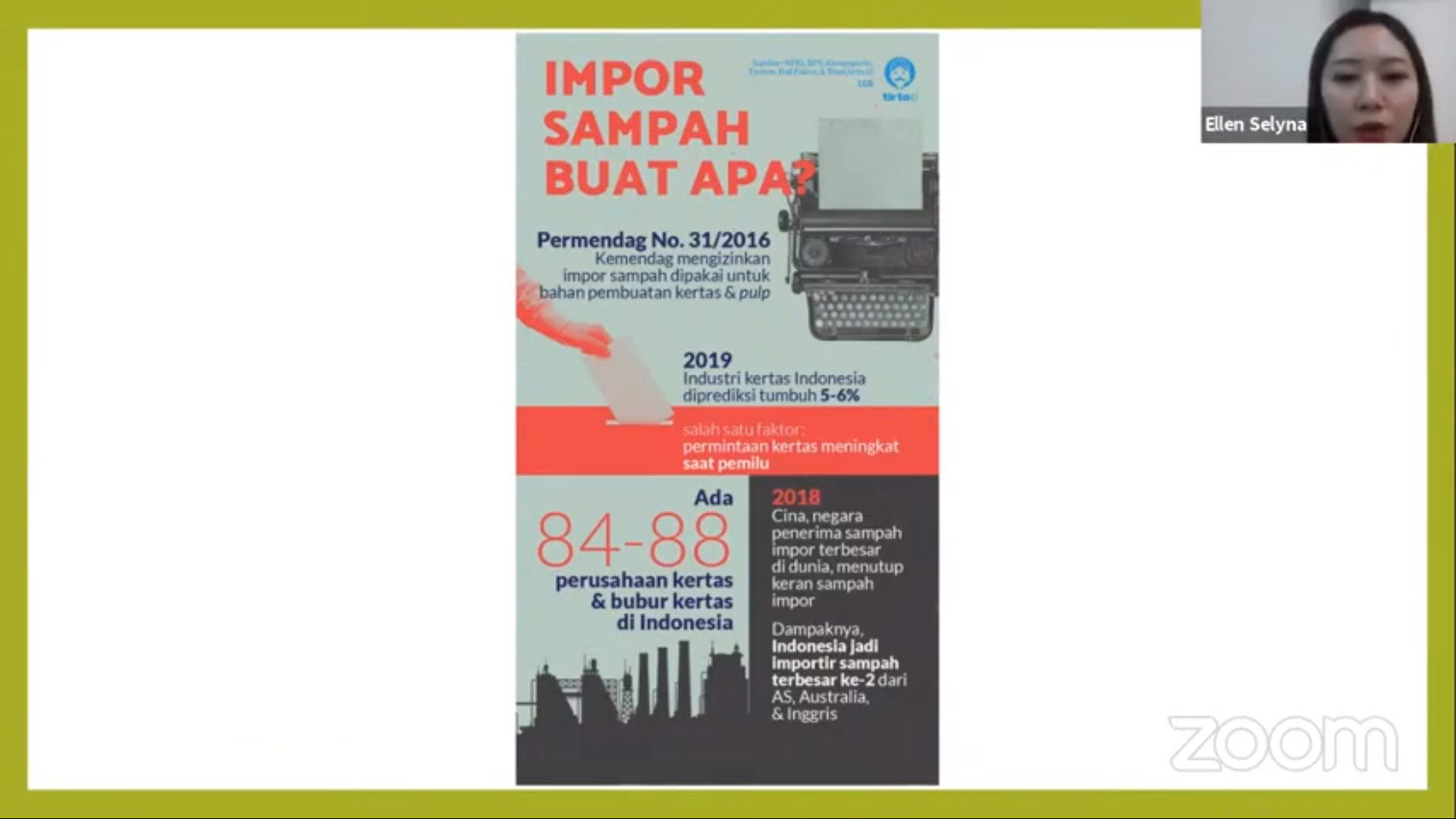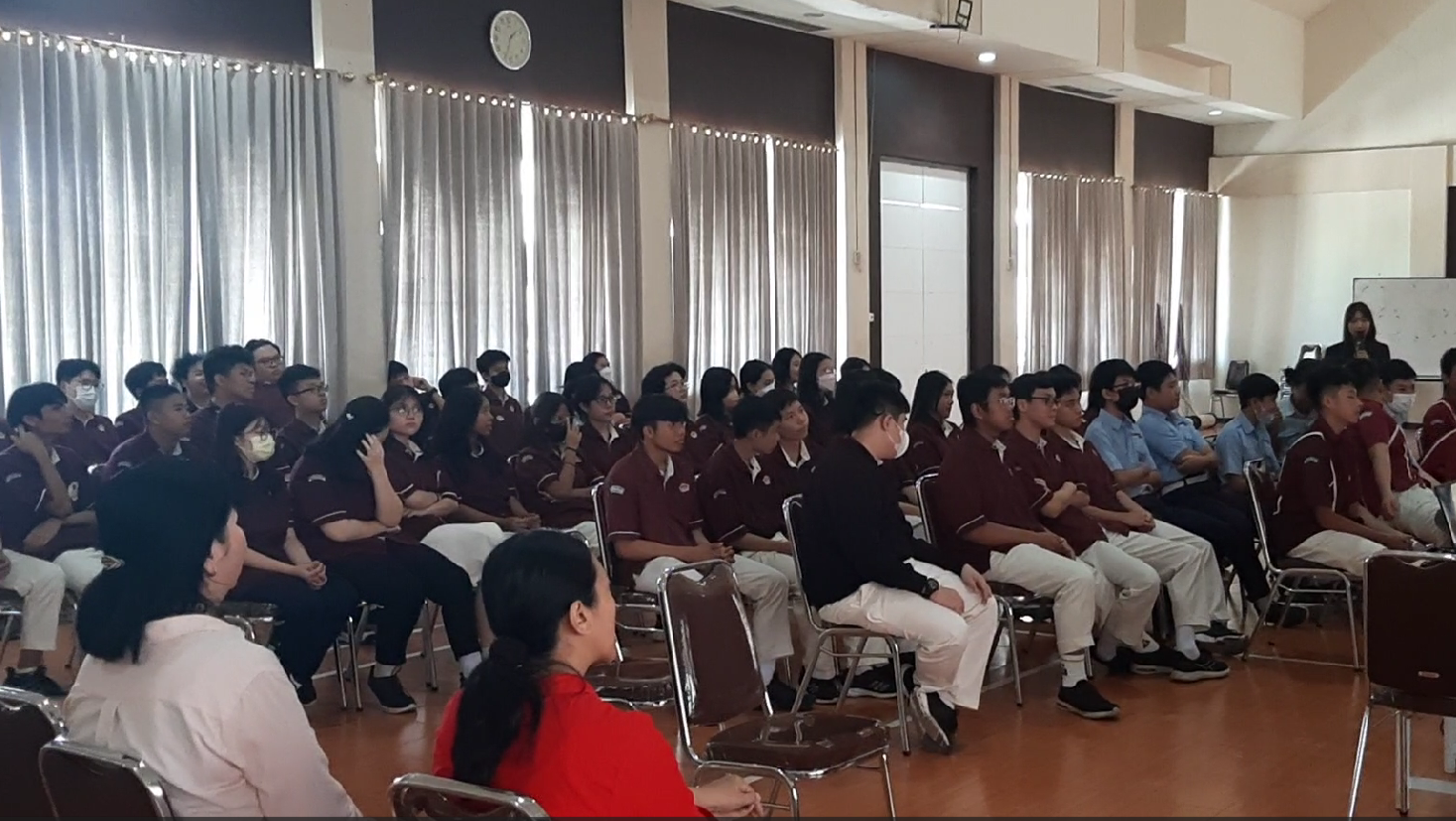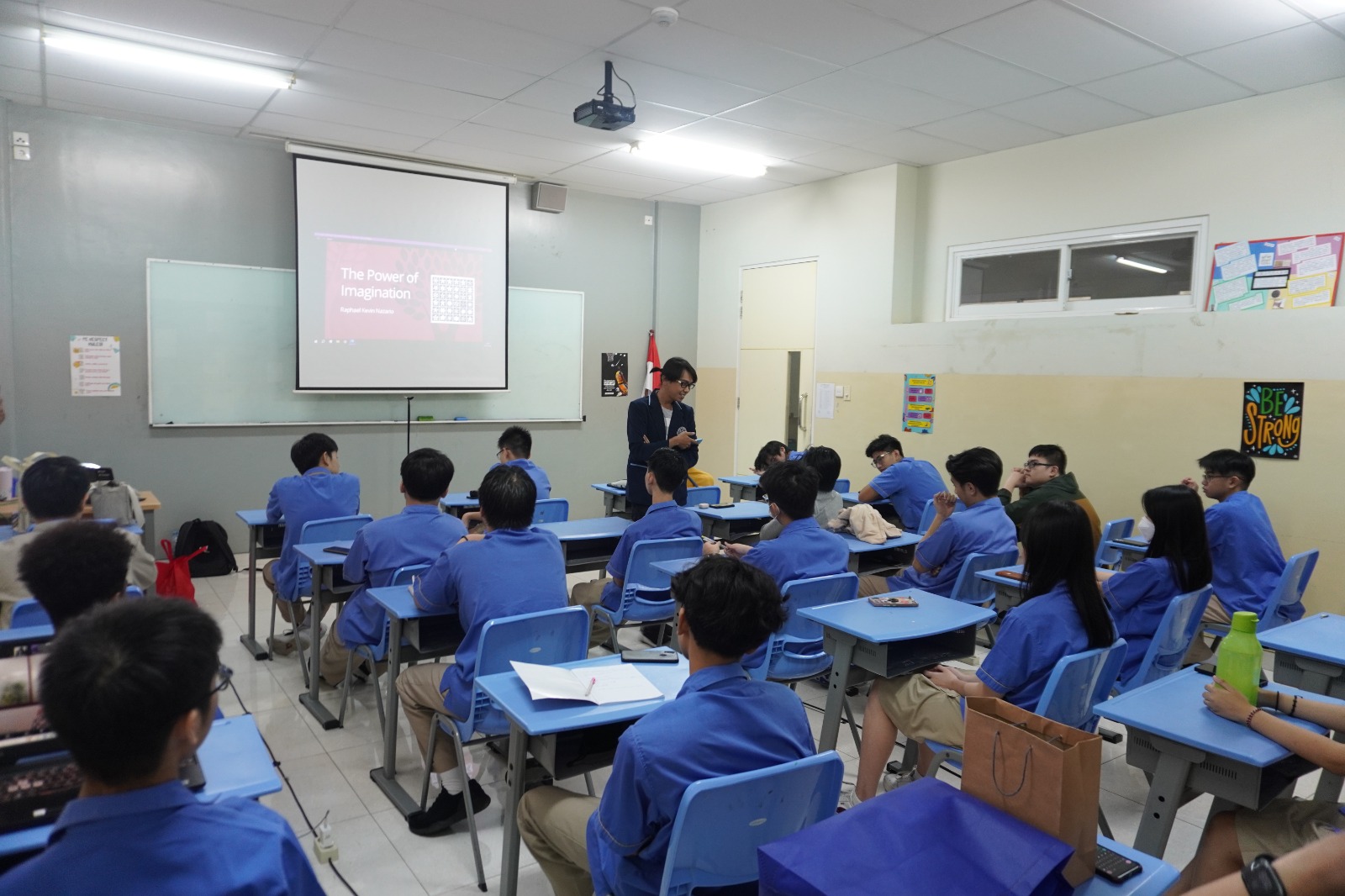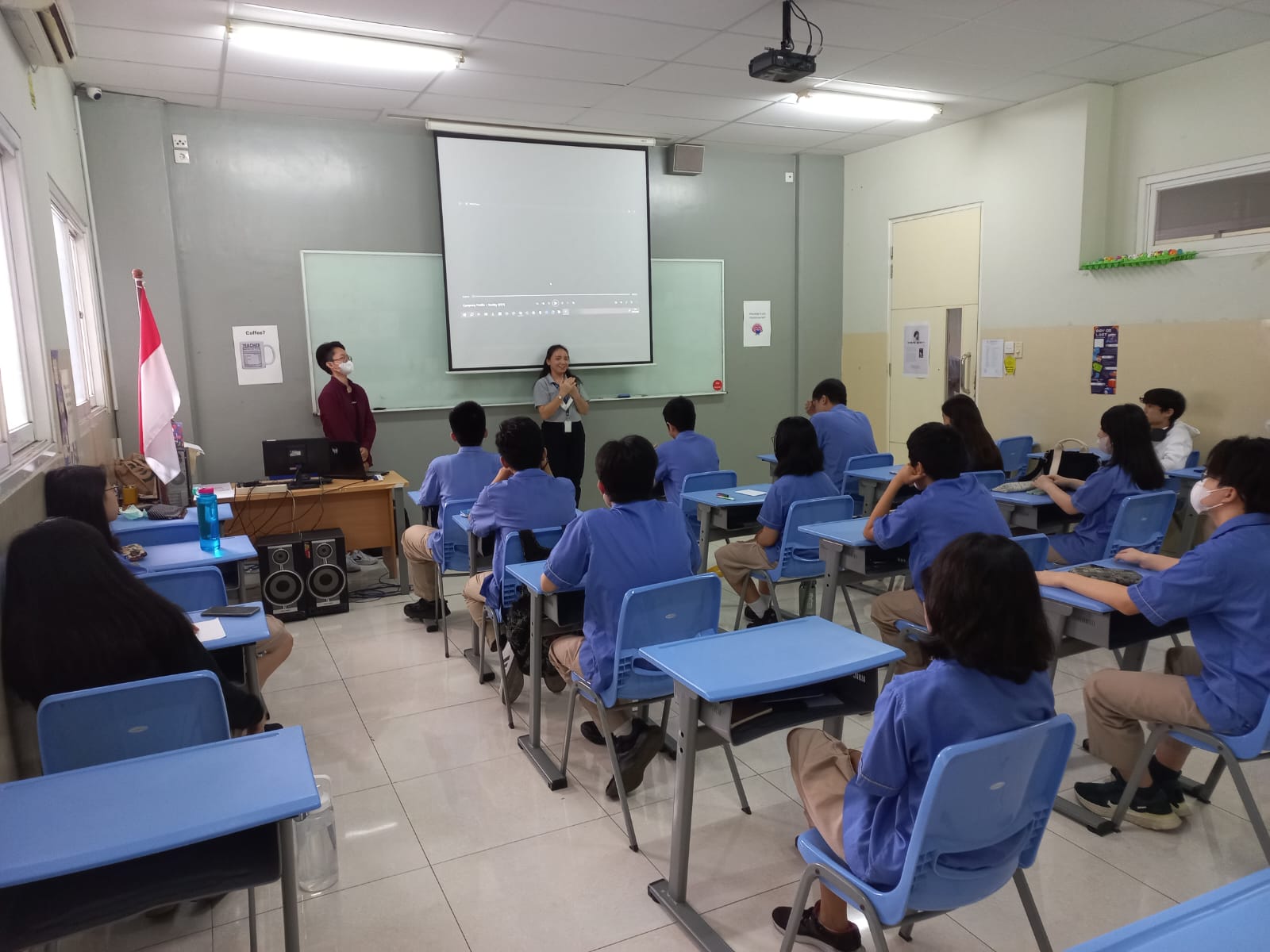
SUSTAINABLE LIFESTYLE
ISTTS is again holding an online webinar on Thursday, 19 November 2020. This webinar is one of the episodes in the Knowledge Sharing Program which has entered its 7th season. As usual, the KSP organizing committee opened the webinar with thanks for participating in this webinar. In addition, the committee also reminded participants to attendance as a condition of attendance.
After that, the speaker named Ellen Selyna Ardinata, S. T. directly explains the meaning of sustainable. Sustainable comes from 2 words, namely sustain and able which means there is balance and sustainability. There are several reasons why sustainability is so important. First, we cannot predict whether this resource will eventually run out. We also cannot predict the survival of the next generation of humans. It is possible that the next generation of humans will have to scramble to get food as a result of previous human actions.
Sustainable has 3 core elements, namely environmental protection, social development, and economic development. This webinar only discusses environmental protection, other points will be discussed in other topics. "In essence, we have to be aware of the consequences of all the actions we do. Oh if I do this the consequences are A, if I do this the consequences are B. Then we have to be aware of the carbon footprint. Oh, if we take this transport, how much carbon footprint. That is what we will discuss in this webinar, ”said Ms. Ellen.
Indonesia is ranked 2nd as the largest waste contributor in the world. An example is the Bengawan Solo River which is used as a trash can by the local community. Contamination is carried out from kitchen waste, livestock waste, and diapers. Another example is the Citarung River which has also been named the dirtiest river in the world. It is not enough to accumulate waste in various places, it turns out that Indonesia and other ASEAN countries have become waste importers. Indonesia itself is the 2nd largest importer of waste from the US, Australia and the UK. In fact, Indonesia has not been said to be very capable of processing waste properly. However, several developed countries chose Indonesia because of its very low costs.
Talking about waste, of course it cannot be separated from plastic waste which is a problem for countries in the world. Our country itself, namely Indonesia, has occupied the second position in the world of plastic waste production in the oceans with a range of 0.48 to a high of 1.29 million metric tons. . In fact, plastic waste has a smaller carbon footprint than aluminum. One type of plastic called polyethylene alone takes up to 20 years to decompose and 500 years in landfills. Of course, countries in the world will always look for solutions in managing plastic waste. Indonesia also carries out waste management, but in fact the percentage of waste management in Indonesia in 2015 is as follows, 69% is dumped in the TPA, 10% is buried, 7% is composted and recycled, 7% is not managed and 5% is burned.
As the millennial generation, we must have a role to minimize waste in order to preserve the environment. We can start from not using plastic bags when shopping but using cloth bags, reducing electronic waste by refraining from buying electronic devices when not needed, and refraining from shopping for new clothes and preferring to shop at clothes or second-hand stores that can be used. also helps UMKM (Small and Medium Enterprises). "There are many other things we can do. Suppose we are lovers of things related to beauty. You can buy makeup brushes and combs with wooden handles. We can also choose products whose packaging is made of glass, because glass is cheaper for the environment than plastic, ”added Ms. Ellen.
The topic of garbage is also inseparable from leftover food waste. Maybe for most people, we ourselves think that leaving food is a very natural thing. But in fact, food that is not used up and is not processed properly will produce methane gas which has a role in greenhouse gases and causes the ozone layer to deplete and cause global warming.
This webinar was closed with a final absence and a group photo and an invitation for us, the younger generation, who have received various knowledge about how important it is for us to care for the environment and the earth. Many things we can do from simple things. Let our friends protect this earth for the survival of our next generation!
Source : https://istts.ac.id/berita/zvdbpG6q2L-SUSTAINABLE_LIFESTYLE


